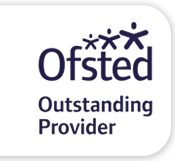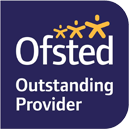Harassment and Sexual Misconduct
We are committed to providing an environment where all members of our community feel safe, are respected, and can study, work and live free from harm

At the Cornwall College Group we are committed to ensuring that students not only feel safe on campus but also have access to support for their wellbeing and safety.
We are committed to providing an environment where all members of our community feel safe, are respected, and can study, work and live free from harm.
99% of adults and 96% of our students aged under 18 state they feel safe at College. Where students do not feel safe this has been addressed locally and it is reviewed throughout the year.
We have a range of safeguarding policies, procedures and support to ensure that students have access to report concerns or access support. Please see our Safeguarding pages for more details: Safeguarding at Cornwall College
Sexual Harassment, Violence and Misconduct
Definition as guided by the Office for Students:
Harassment, including sexual harassment, includes unwanted behaviour or conduct which has the purpose or effect of violating a person’s dignity or creating an intimidating, hostile, degrading, humiliating or offensive environment because of, or connected to, one or more of the following protected characteristics: age; disability; gender reassignment; race; religion or belief; sex; and sexual orientation
Based on section 26 of the Equality Act 2010 and section 1 of the Protection from Harassment Act 1997
All suspicions and allegations of abuse, neglect or exploitation will be taken seriously and responded to swiftly and appropriately, with due regard to appropriate levels of privacy and the dignity of those concerned while ensuring that those experiencing abuse are supported and kept safe. Our Safeguarding Policy (Safeguarding at Cornwall College) outlines the range of ways in which we will ensure the safety and support of our students. We will provide an environment where students feel safe to disclose and report any concerns while reassuring victims of abuse that they will be taken seriously and will be supported.
Where a concern is reported by a student about another student, we have a comprehensive Peer on Peer Abuse and Anti-Bullying Policy.
Our Staff Professional Guidance and Code of Conduct outlines the professional boundaries and expectations for staff recognising their position of trust and power in the organisation.
Students are required to follow the college code of conduct to act responsibility, show respect for others and themselves and be ready to learn. Where this is not met, the Behaviour and Misconduct Policy will be implemented.
Our Freedom of Speech policy also outlines how discrimination will not be tolerated in line with the law and Equality Act.
All policies can be found on our website or through request from any staff member for internal procedures. Click here for our Downloads and Documents area
Professional Support
All college staff undertake annual safeguarding training which includes how to act as a trusted adult and support disclosures, including understanding sexual harassment and violence and other risks that students and our communities face.
We have highly trained safeguarding teams who are experienced at supporting students and work with a range of external support networks and agencies to ensure that students get access to the support they need. We have DASH (Domestic Abuse, Stalking and Harassment and Sexual Violence) trained staff who can undertake referrals for quick access to support for victims of domestic and sexual abuse. We also work with Sexual Assault Referral Centres (SARC) as well as other local agencies and networks.
Support for Students
Education, understanding risks, recognising abuse and how to support are important part of the support process.
Students will undertake tutorial and personal development lessons to develop this understanding and understand the support networks and processes available. We know that students are more likely to disclose with those they trust and those that take their concerns seriously. We will regularly promote how students can access this support and make disclosures.
97% of our students state they know who to go to if they need support for their or someone else’s safety.
We also bring in external support agencies onto campus to provide access for students to learn about the wider community support available and access other ways of disclosing information or accessing support.
Reporting or disclosing a concern
You can talk to any trusted member of college staff who will listen and not judge. In most cases this will be passed onto a safeguarding professional in the organisation who can support you. We will always work with the individual to discuss what to do next and what support they would like.
You can also speak directly to your campus Safeguarding Officer who you should know from your induction and posters on campus but you can also access here: Safeguarding at Cornwall College.
These are monitored Monday to Friday 8.30 – 5pm only.
Other Support Networks
These are just some of the support networks that can be accessed at any time- Safeline – preventing and surviving sexual abuse (including specific support for males): Safeline
- First Light support about sexual violence Survivor Pathway
- NHS Sexual Assault Referral Centres Devon & Cornwall SARC – NHS
- Kooth: Mental Health support for under 18s Kooth
- Qwell: Mental Health support for adults Qwell


 Officially Outstanding - Read More
Officially Outstanding - Read More